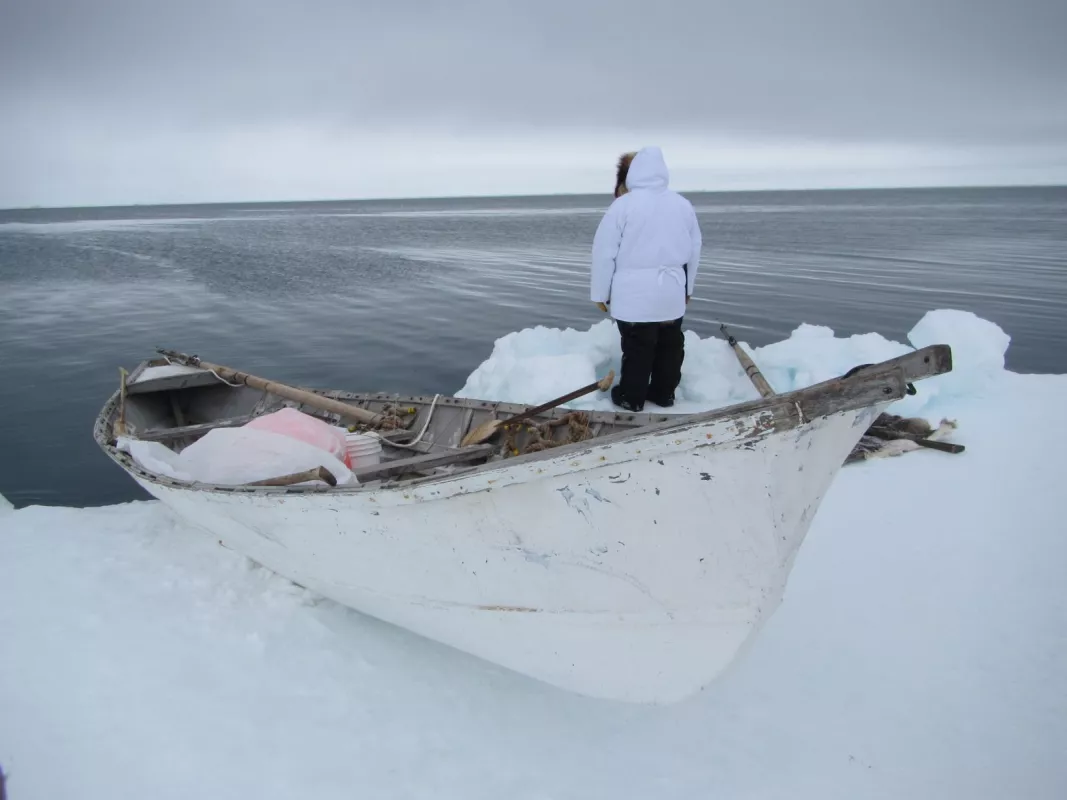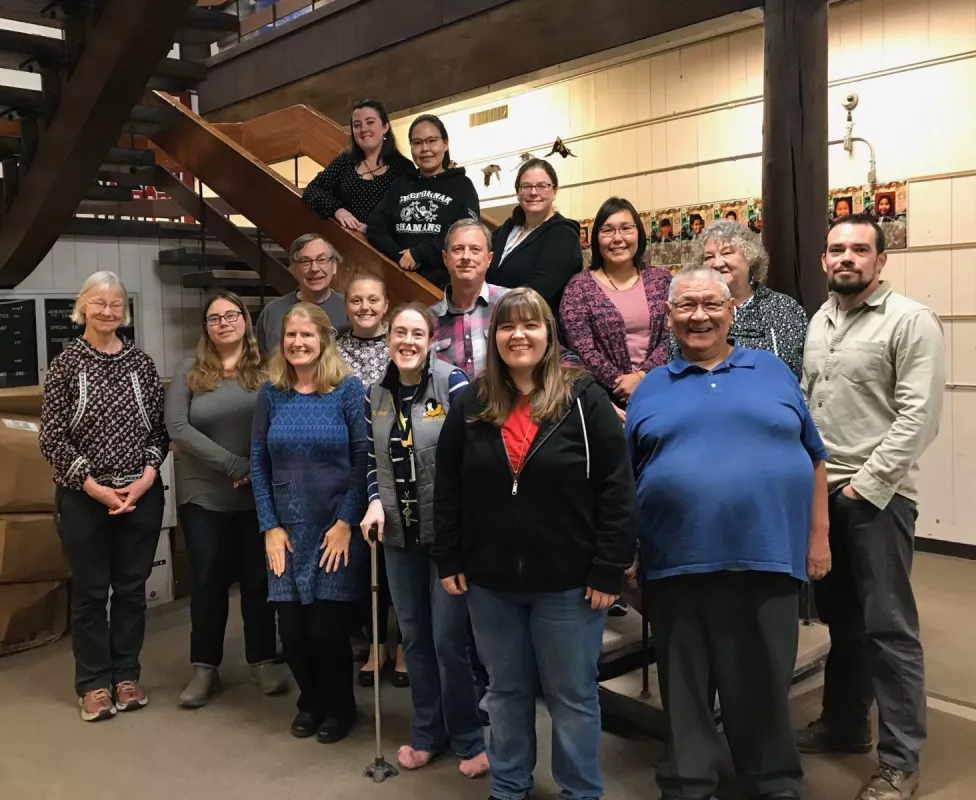Since 2006, the Exchange for Local Observations and Knowledge of the Arctic (ELOKA) program at the National Snow and Ice Data Center (NSIDC) has worked with Indigenous organizations, community partners and researchers across the Arctic to facilitate the collection, preservation, exchange and use of Indigenous Knowledge and community-based observations of the Arctic. This year, the National Science Foundation (NSF) has renewed funding for the program with a five-year collaborative award to ELOKA, Calista Education and Culture (CEC), the Alaska Arctic Observatory and Knowledge Hub (AAOKH) at the University of Alaska Fairbanks and the Yukon River Inter-Tribal Watershed Council to continue their work with Indigenous partners.
“Our partners are doing critically important work to document Indigenous Knowledge and observations for a range of different information needs, including Indigenous language learning, better local and regional management of natural resources and awareness of the risks, hazards and local impacts of environmental change,” said ELOKA principal investigator Noor Johnson, a research scientist at NSIDC. “We are excited to extend and deepen these collaborations so that documented knowledge can be safeguarded and used to inform decisions and policy.”
The Arctic has been home to Indigenous Peoples for millennia. As the region warms twice as fast as the rest of the globe, Indigenous communities are disproportionately affected by climate change. They are experiencing more sea ice-related accidents, shortened hunting seasons, damage to infrastructure due to permafrost thaw and coastal erosion, and more. Indigenous-led research and local observations are key to understanding these changes occurring across Indigenous Arctic homelands. The online observation platform for AAOKH, for example, contains more than 7,800 observations of sea ice, weather and animals that were contributed by coastal observers in Alaska going back to 2006.
“We are seeing big changes in temperature, freeze-up conditions and coastal erosion… and we’ve started seeing the whales earlier and earlier every year,” said Guy Omnik, an AAOKH observer from Point Hope, Alaska. “[By collecting Indigenous Knowledge], we can look back on these observations for years to come, and compare them to see if there have been any dramatic changes.”
One of ELOKA’s priorities is to assist local communities with managing and using the data that they collect so they can best meet their information needs and priorities. For example, after partnering with CEC to develop the Yup’ik Environmental Knowledge Atlas, ELOKA began working with the Lower Kuskokwim School District to support classrooms using the atlas for Yup’ik language instruction.
The cultural knowledge documented in the atlas can not only help with language learning, it can also help keep people safe. “It was the wish of the original Calista Elders Council board of directors to pass on Yup’ik traditional knowledge to the youth and the general public, including the traditional names of village sites, rivers, lakes, hills and landmarks,” said Mark John, CEC cultural advisor. “The ELOKA atlas is an excellent place to store this information so that people can learn about these locations. By knowing the place names, anyone traveling in these regions can share where they are going and if they don’t return, their family knows where to look for them.”
The new funding will allow ELOKA to meet community information needs through new and enhanced digital tools, collaborative research and network building and improve the usability of data products. Project team members and partners will engage community members, researchers and Indigenous students in exploring options and innovating solutions for community data management that upholds Indigenous data sovereignty. This work will highlight the central importance of Indigenous Knowledge in decision-making by communities in various Arctic regions—all which are experiencing the unique challenges of the changing North.


